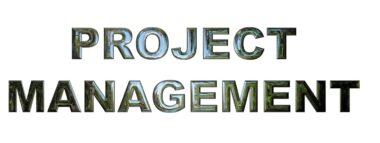Creating a Lessons Learned Knowledge Base for Business Success
In the realm of project management, accumulating and utilizing knowledge effectively is essential for sustainable growth. A structured Lessons Learned Knowledge Base (LLKB) offers immense value to organizations. It consolidates insights gained from past projects, helping teams avoid making the same mistakes. This resource not only promotes a culture of continuous improvement but also facilitates informed decision-making for project managers and stakeholders. By documenting lessons learned, businesses can create a repository that supports future projects. This reduces risks associated with projects by enabling teams to reference previous challenges and adapt strategies accordingly.
Additionally, the implementation of an LLKB fosters better communication among team members. When lessons are shared openly, every member benefits. They gain crucial insights into what has worked previously and what hasn’t. This collective knowledge drives collaboration, boosting team morale. Furthermore, teams working on similar projects can learn from one another’s experiences. An effective LLKB can also aid in onboarding new employees, speeding up their learning curves. With immediate access to past project experiences, new team members easily adapt to the company’s operational patterns and expectations. Ultimately, this backlog serves as a valuable training tool.
To build an effective Lessons Learned Knowledge Base, organizations should start by collecting data during and after project completion. Utilizing techniques like surveys, team meetings, and reflection sessions ensures that valuable insights are captured. It’s vital that the data is compiled in a clear, accessible format. Strengthening the LLKB requires consistent updates and engagement from team members. Assigning specific roles can enhance accountability. By encouraging all team members to contribute, the knowledge base flourishes organically. Establishing a straightforward process where lessons are recorded, categorized, and made available will ensure its longevity. Furthermore, incentivizing participation can encourage more input.
Structuring the Knowledge Base
When structuring the LLKB, it’s essential to categorize lessons clearly for easy navigation. Categories might include project types, challenges faced, solutions implemented, and outcomes achieved. Each entry should include specifics, such as project name, date, team members involved, and relevant metrics. Ensuring that the lessons are concise and actionable will enhance their usefulness. A well-structured LLKB allows users to filter information according to their project’s needs. Including search functionality or tagging can further enhance user experience, making information retrieval swift and efficient. Visual tools, such as charts or infographics, can also make the data more engaging.
Once the LLKB is created, regular reviews are necessary to maintain its relevance. As projects evolve, the lessons can shift. Conducting periodic assessments of the existing knowledge base can uncover outdated or irrelevant entries. Furthermore, identifying trends or repeated mistakes can provide organizations with an opportunity to address systemic issues. Engaging in these reviews ensures that the LLKB continues to serve its intended purpose, keeping the information current and useful. Stakeholder feedback should be sought to enhance the knowledge base continually. This responsiveness to user needs can profoundly impact the effectiveness of the LLKB.
Successful implementation of a Lessons Learned Knowledge Base requires full support from leadership. Leaders should set an example by actively engaging with the knowledge base and encouraging their teams to do the same. Communicating the importance of the LLKB to the organization helps to establish a culture of learning. As part of project kickoffs and retrospectives, referencing the knowledge base should be becoming a standard practice. Leadership involvement not only underscores the value of collective knowledge but also promotes trust and accountability among teams. Ensuring that everyone understands its purpose increases adoption and utilization.
Benefits of an LLKB
Incorporating a Lessons Learned Knowledge Base brings myriad benefits, such as enhanced project success rates and reduced costs. By leveraging past experiences, teams can implement best practices that promote efficiency and quality. Moreover, having access to lessons learned enables teams to strategize effectively, minimizing delays or budget overruns. This comprehensive resource supports risk assessment and management, enhancing an organization’s resilience. Furthermore, an LLKB improves compliance and governance, ensuring projects align with industry standards and regulations. Each lesson documented serves as a preventive measure against future challenges, solidifying a company’s competitive edge.
In conclusion, organizations that prioritize the development of a Lessons Learned Knowledge Base stand to gain a significant competitive advantage. By systematically documenting and analyzing past project experiences, companies can refine their processes and drive innovation. The LLKB is a living resource that not only preserves knowledge but also transforms it into actionable insights. Investing in training and resources to create and maintain this knowledge base is worthwhile, as it contributes to overall project success and business sustainability. By continuously learning and adapting, businesses can foster a culture of excellence that drives growth and enhances collaboration.





